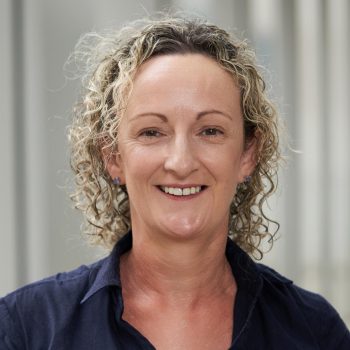I always remember our founder, the late Fred Swaab, talking about being at the bleeding edge.
He was a man who looked ahead to the next step, always challenging himself, and those alongside him, to find better ways to do things.
Fred wanted to be right out in front – at that bleeding edge – where you dare to explore new ideas, where you ask the questions and push the boundaries, and where innovation is always the driver.
Fred was not afraid to do things differently in law – in such a conservative industry he stood out from the crowd.
His philosophy underpins everything I do in my privileged position as Managing Partner of Swaab Attorneys.
My approach to innovation at every level here at Swaab, means having an open mind to try new things and see things differently.
It appears to be working well — as Fred may have envisaged – evidenced by the fact that the firm continues to succeed and grow.
We keep broadening the Swaab sphere of influence. We spend time with people who are not lawyers, because I know the value of listening to and working with people from a broad range of industries.
There is so much to learn and it changes our thinking. I find that we stop thinking like traditional lawyers and, while we work inside the legal framework, we are better able to put ourselves in our clients’ shoes and see things from their perspective.
For example, we work with a range of start-ups and SMEs who are innovators and entrepreneurs. Or, high net worth individuals, and family offices and businesses — people who put ideas into action and have achieved success because of their ability to think differently.
We work with people who have the courage of their convictions — people who get things done.
Our focus on innovation is significant because my tenure has come at a time of profound change due to the disruptive forces affecting our clients and our profession.
To stay at the bleeding edge, I recently commissioned the Swaab Innovation Initiative.
It involves four key stages:
The first stage involves immersion in the innovation and entrepreneurship ecosystem.
For almost a year, we have been:
The second stage involves broadening the skills of our people
We have crafted a program that exposes our people to what’s happening in the innovation and entrepreneurship ecosystem, bringing them face to face with people driving change.
We have already heard from Anne-Marie Elias and worked with Sandy Plunkett and David Uren, Gavin Heaton and Joanne Jacobs. This afternoon, we will be joined by John Dobbin who has provided assistance to Urban Growth in planning the White Bay Innovation Precinct.
In the coming weeks we will hear from Paul Shetler (DTO), Liz Jakubowksi (Data61), Bel Johnson (Uber), Monica Wulff (StartupMuster), Alex Scandurra (Stone & Chalk), Kate Carruthers and (UNSW) and James Mabbott (KPMG).
The third stage involves supporting the efforts of our clients
We have designed a program that includes the:
- Client Stories initiative – where we share the stories of success from across our client base with those who want to learn from their experience. We profiled the story of Paul Chan from Pureprofile and Mark Nagle from Treysta Wealth Management to the community at Stone & Chalk.
- Pitch Series where Startups will pitch their business to an audience of potential customers and investors
- Marketplace program – where clients will hear from those who can help them move their businesses into the new economy
- Export initiative – where Startups and SMEs can learn how to grow their customer base off-shore, with a specific focus on countries with whom Australia has signed FTAs.
The final stage involves being innovative ourselves
The year’s program will culminate in a Design Challenge @ Swaab. Our plan is to co-design solutions for specific challenges identified by clients, our lawyers and staff. We will then pick solutions that we will incubate and deliver so that we can drive better outcomes for our clients and our people.
As a Founder Firm, we are the embodiment of what innovation and entrepreneurship can produce.
We lost Fred Swaab earlier this year, but we will never lose the appetite or the inspiration for innovation.

